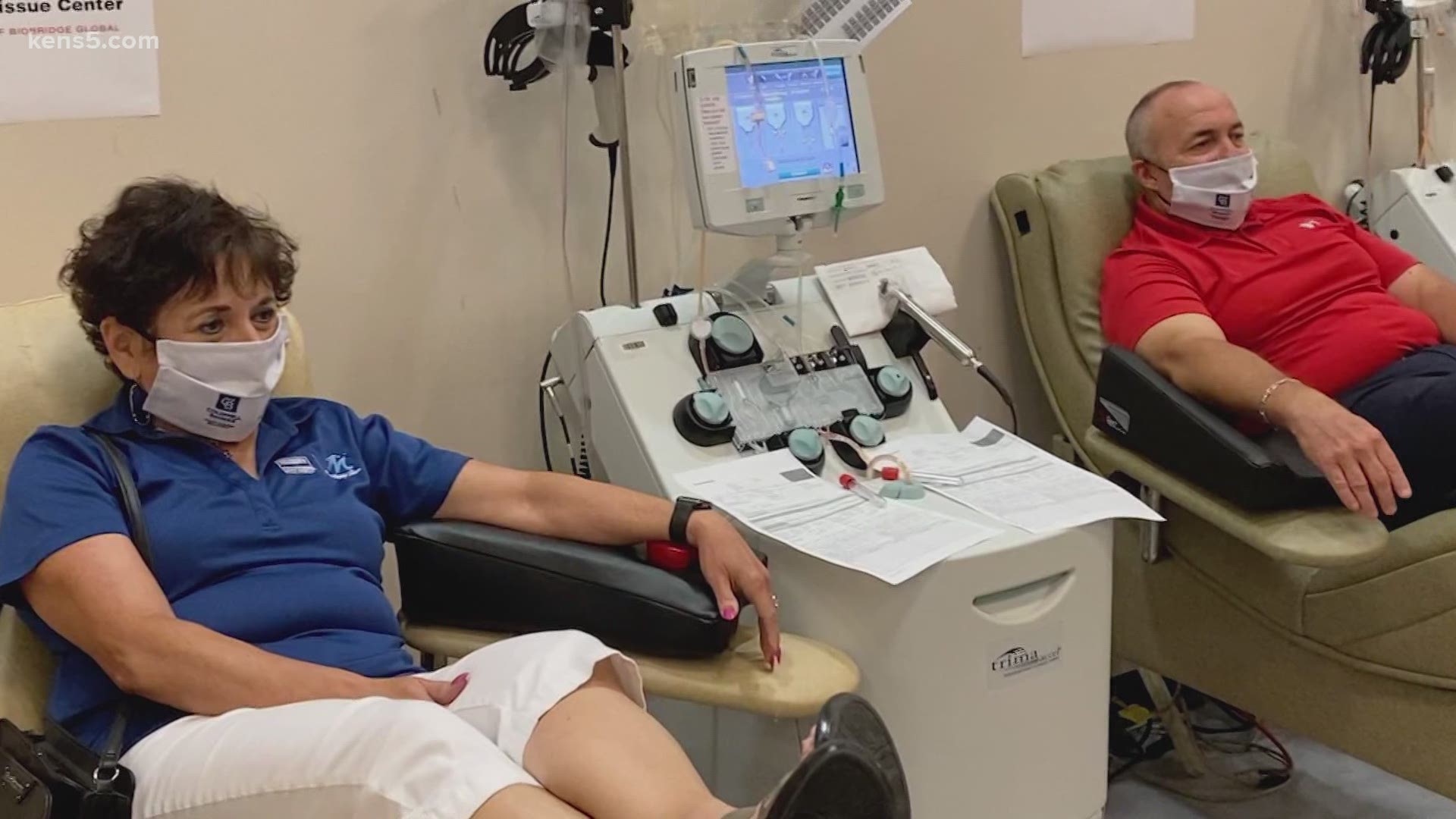SAN ANTONIO — Brian and Dina Murphy caught the novel coronavirus back in 2020, and have since recovered. After finding out there were antibodies in their convalescent blood plasma that could help others currently battling the virus, they went to the South Texas Blood and Tissue Center to donate.
Brian has donated nine times, and his wife, Dina, has been back 13 times.
“God helped us survive. I felt that he wanted us to help others,” Dina Murphy said.
Antibodies usually stay in a person's blood for about three months after being infected with COVID-19. As time went by, Brian's antibody counts were decreasing—until recently.
“I was blown away, I couldn’t believe they were back and I was ready to give again,” Brian Murphy said.
Samantha Gomez, associate medical director at STBTC, said that because antibodies can come back, those who have donated could potentially return to donate more. But as the early phases of coronavirus vaccination efforts unfold, the window of time they have to do so is shrinking.
“If a person has received either vaccine, they can donate blood and platelets. Unfortunately, at this time If a donor receives either vaccine, they are not able to donate convalescent plasma,” Gomez said.
“I would tell people to go ahead and give as long as they can give plasma,” Brian Murphy said.
As more people continue to be infected daily, they say the need for convalescent blood plasma and blood remain high.
“You have to think about the impact you’re having on that family, that they’re family member is getting better,” Dina Murphy said.

